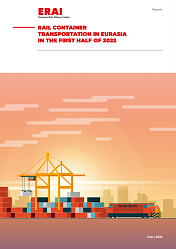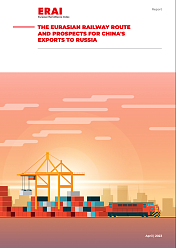China’s largest policy bank has pledged additional funding support to upgrade a key railway link to Europe at a time when both sea and air transport links are struggling from various coronavirus-related pressures.
China Development Bank will support the construction of key domestic port stations with bonded warehouses for the China Railway Express, as well as creating hub projects with multimodal transport functions and a strong international influence, according to the state-backed Financial News on Thursday.
The bank will also provide funding to help accelerate technology development and equipment upgrades, which will assist in reducing transport costs and improving efficiency.
The railway network between Europe and China is a key component of President Xi Jinping’s Belt and Road Initiative, which seeks to link Asia, Europe and Africa with a network of ports, motorways and railways.
The China-Europe rail programme, which links 89 Chinese cities with 23 countries and 175 cities in Europe, has become an alternative to global sea and air transport which have been both impacted by the coronavirus. Rail transport is generally cheaper than the faster air route and faster than seaborne freight.
The upgrades will help expand rail networks, bonded warehousing, multimodal transport, logistics parks, distribution centres, port construction, cross-border e-commerce as well as import and export processing.
According to China Railway, 13,817 trains carried 1.33 million 20-foot equivalent units along the route in the first 11 months of the year, up 23 and 30 per cent respectively compared to the same period in 2020.
China has already invested in the construction of several overseas stations this year, with 12 added to Zhengzhou’s China-Europe railway, including Kaliningrad in Russia. The network of stations from Chengdu was also increased by 68, including Immingham on the east coast of Britain, while a new route connected Chongqing to Kyiv in Ukraine.
Europe’s largest freight rail company, Deutsche Bahn, also set up a 100 per cent-owned subsidiary in Shanghai in November.
«DB Cargo Eurasia is repositioning itself in order to bring even more freight transport onto the rails between Europe and China in the long term,» said a Deutsche Bahn statement.
The China-Europe rail route, though, is supported by significant funding of up to US$7,500 per container, according to Ding Rujun, the vice-president of Lanzhou University of Finance and Economics.
According to Ding’s research, which was published in the Northeast Asia Economic Research academic journal earlier this month, subsidies can range from US$3,000-US$4,000 per container, up to US$7,300 from Guangzhou and US$7,500 from Chongqing and Zhengzhou, which in some cases exceeds the freight cost itself.
«It is the excessive intervention of local governments in the China-Europe rail that leads to the low efficiency of its market-oriented operation which intensifies the vicious competition among transport enterprises, disrupts the normal market order and is not conducive to the healthy and stable development of China-Europe rail,» he said.
Ding also said that substandard infrastructure in some less developed areas along the route has exacerbated the problems of ageing tracks, poor facilities and insufficient storage capacity, which to a certain extent restricts the development of the China-Europe route.
«This not only prolongs the cargo transport time, but also tends to cause commodity loss and congestion of the trains, reducing the overall operating efficiency of the train,» he added.





